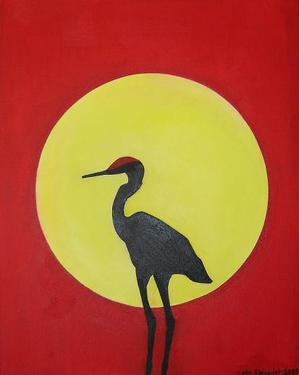 Bright and chilly this early Wednesday, the first day of April, and the day of the dullard and cretin, full of the ridiculously inadequate.
Bright and chilly this early Wednesday, the first day of April, and the day of the dullard and cretin, full of the ridiculously inadequate.
A huge difference in heat, between overcast/ground fog, and a crystal-clear sun rise — we’re still sitting at 38-degrees, and from at least my tinny vantage point, some 10 degrees colder than yesterday morning. Earlier, first light indeed arrived like thunder — a metaphor.
A what? In this age of data galore, I must be way-smarter than those dumb-asses back in the 1950s, with the click-ability to Google intelligence, metaphorically speaking.
Not: ‘Searching the Internet for information may make people feel smarter than they actually are, according to new research published by the American Psychological Association.’
(Illustration found here).
An easy, human sense — we’re always smarter than we actually be smart. More from the Association link above:
“The Internet is such a powerful environment, where you can enter any question, and you basically have access to the world’s knowledge at your fingertips,” said lead researcher Matthew Fisher, a fourth-year doctoral candidate in psychology at Yale University.
“It becomes easier to confuse your own knowledge with this external source.
“When people are truly on their own, they may be wildly inaccurate about how much they know and how dependent they are on the Internet.”
In a series of experiments, participants who searched for information on the Internet believed they were more knowledgeable than a control group about topics unrelated to the online searches.
In a result that surprised the researchers, participants had an inflated sense of their own knowledge after searching the Internet even when they couldn’t find the information they were looking for.
After conducting Internet searches, participants also believed their brains were more active than the control group did.
The research was published online in the Journal of Experimental Psychology: General®.
And good advice in this bat-shit crazy age:
An inflated sense of personal knowledge also could be dangerous in the political realm or other areas involving high-stakes decisions, Fisher said.
“In cases where decisions have big consequences, it could be important for people to distinguish their own knowledge and not assume they know something when they actually don’t,” he said.
“The Internet is an enormous benefit in countless ways, but there may be some tradeoffs that aren’t immediately obvious and this may be one of them.
“Accurate personal knowledge is difficult to achieve, and the Internet may be making that task even harder.”
Remember, ‘April Fools’ Day,’ as in plural — just Google it, fool!